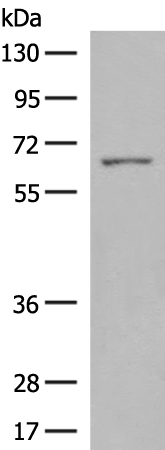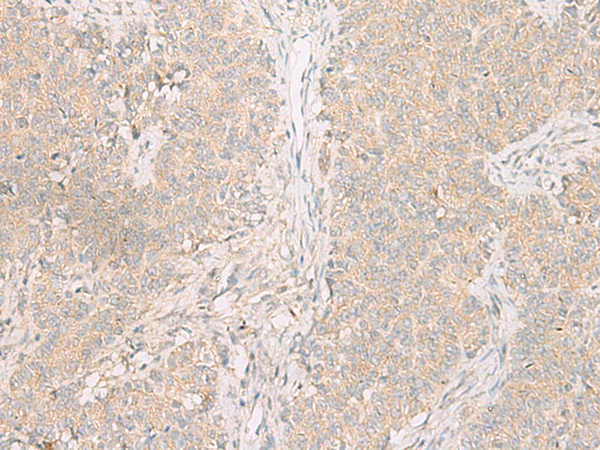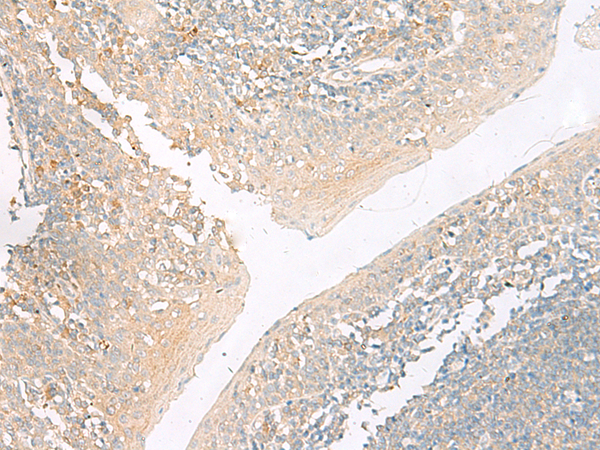


| WB | 咨询技术 | Human,Mouse,Rat |
| IF | 咨询技术 | Human,Mouse,Rat |
| IHC | 1/30-1/150 | Human,Mouse,Rat |
| ICC | 技术咨询 | Human,Mouse,Rat |
| FCM | 咨询技术 | Human,Mouse,Rat |
| Elisa | 1/5000-1/10000 | Human,Mouse,Rat |
| WB Predicted band size | 65 kDa |
| Host/Isotype | Rabbit IgG |
| Antibody Type | Primary antibody |
| Storage | Store at 4°C short term. Aliquot and store at -20°C long term. Avoid freeze/thaw cycles. |
| Species Reactivity | Human, Mouse, Rat |
| Immunogen | Synthetic peptide of human PXN |
| Formulation | Purified antibody in PBS with 0.05% sodium azide and 50% glycerol. |
+ +
以下是关于PXN(Paxillin)抗体的3篇参考文献示例,包含文献名称、作者及摘要概括:
1. **"Paxillin: A focal adhesion-associated adaptor protein"**
*作者:Turner CE, Brown MC*
摘要:该综述探讨了Paxillin在粘着斑中的核心作用,重点描述了其作为支架蛋白在整合细胞外基质信号与细胞内信号通路(如细胞迁移和增殖)中的功能。文献提及使用特异性PXN抗体进行免疫共沉淀和免疫荧光实验,验证Paxillin与多种信号分子(如FAK、Src)的相互作用及亚细胞定位。
2. **"Paxillin phosphorylation in regulating cell motility and cancer progression"**
*作者:Deakin NO, Turner CE*
摘要:研究聚焦于Paxillin磷酸化修饰(如Tyr31/Ser83位点)在肿瘤细胞迁移和侵袭中的作用。通过Western blot和免疫荧光技术,采用磷酸化特异性PXN抗体,揭示磷酸化Paxillin与肿瘤转移的相关性,并探讨其作为癌症治疗靶点的潜力。
3. **"Role of Paxillin in hepatocellular carcinoma: Overexpression correlates with poor prognosis"**
*作者:Huang C, Chen J*
摘要:该临床研究利用PXN抗体进行免疫组织化学染色,分析肝细胞癌(HCC)组织中Paxillin的表达水平,发现其过表达与肿瘤大小、转移及患者生存率降低显著相关,提示Paxillin可作为HCC预后的生物标志物。
(注:以上文献信息为示例性概括,实际引用需以具体出版物为准。)
×